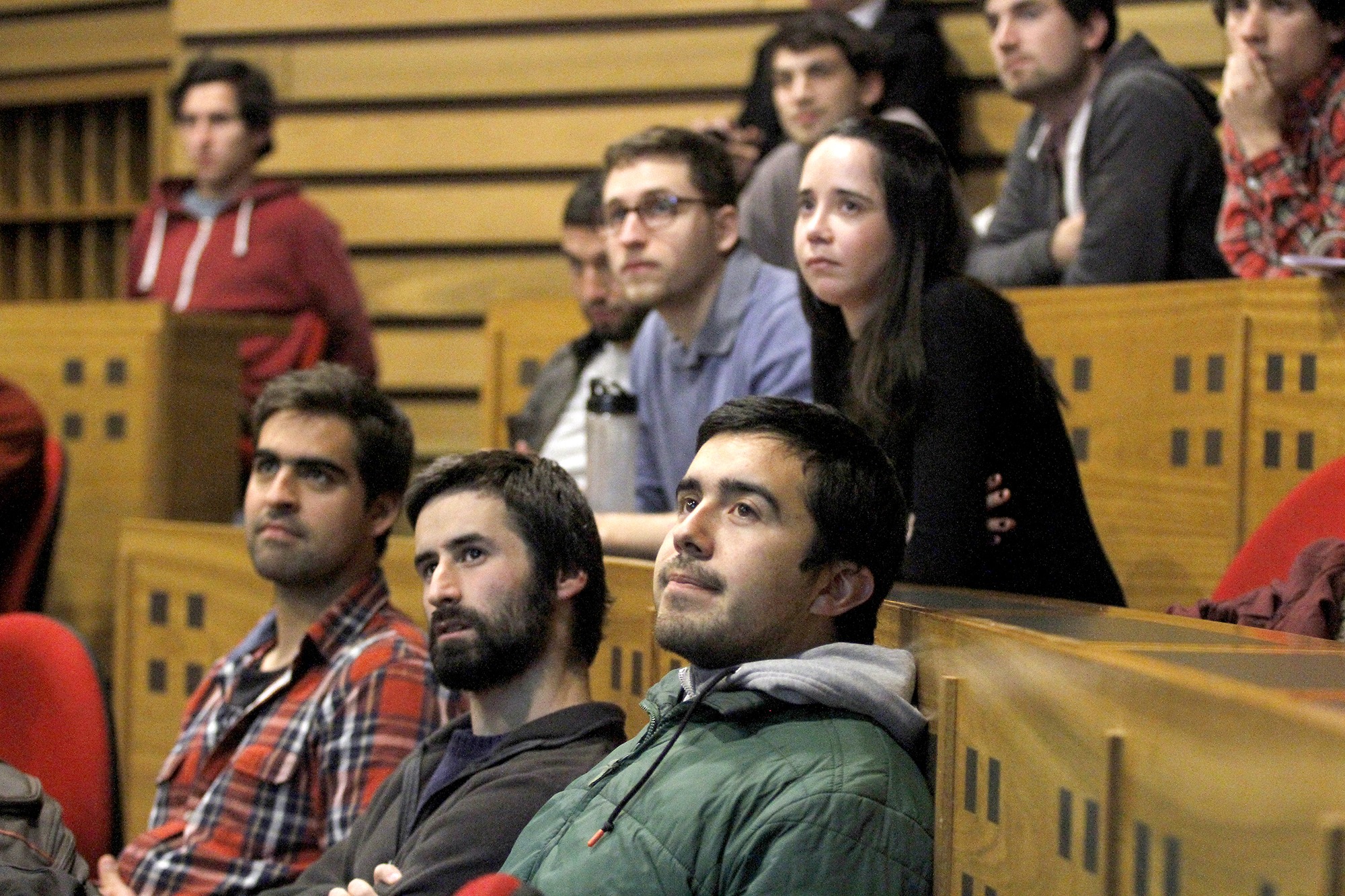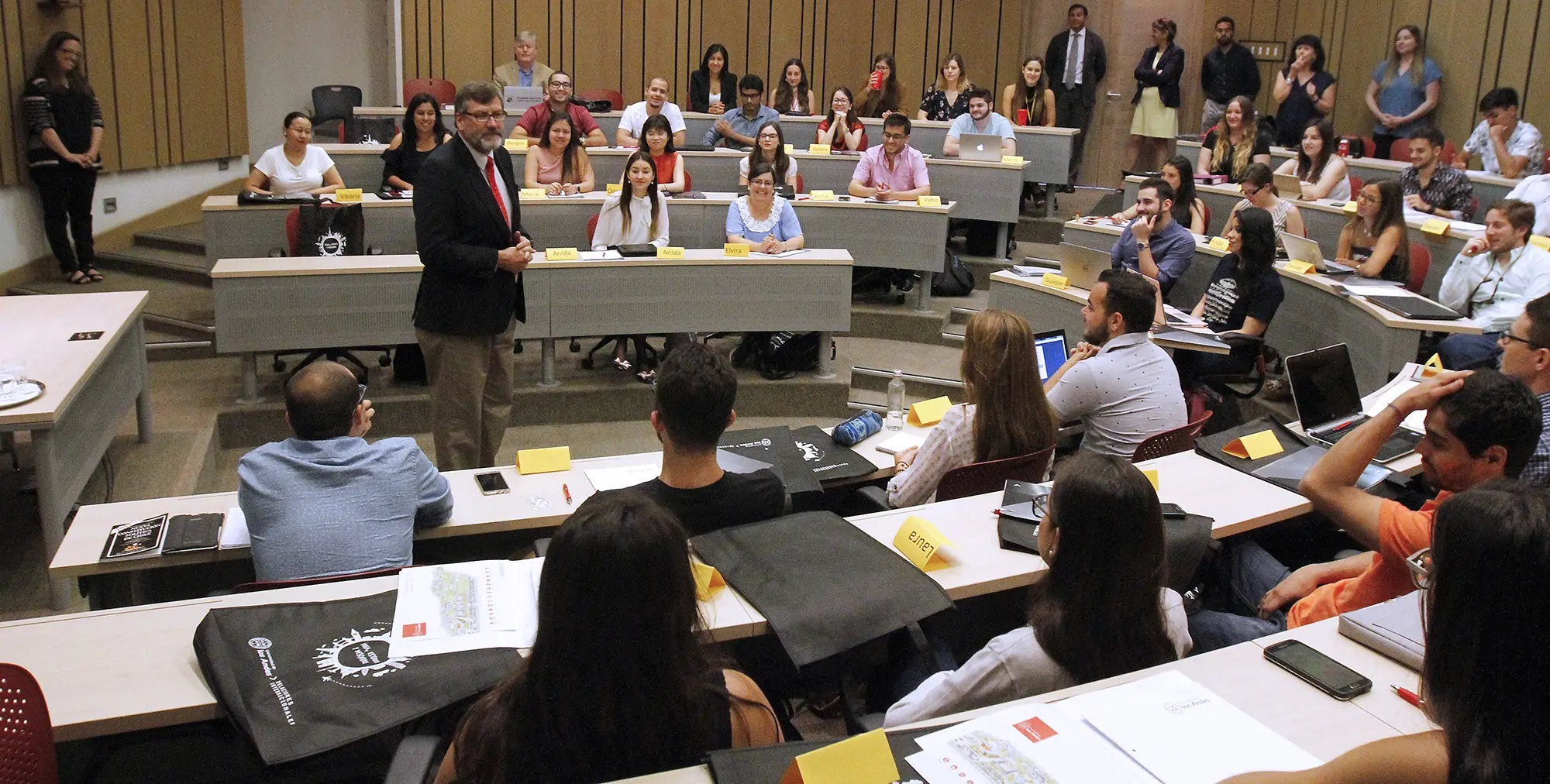The UANDES Institutional Project is the conceptual framework of all our university work and is expressed through our Mission, Vision and Philosophy. Inspired by the teachings of the Catholic Church, and particularly of Saint Josemaría, it is based on the cultivation of vanguard superior knowledge, the integral education of students, spreading knowledge to society and vocation of permanence in time.
This is possible through three of the main purposes of our educational project:
- Academic Training
- Research and Innovation
- Outreach and Relationship with Society
Academic training
The student is the center, beginning and end of the pedagogical effort of the University, since our goal is to provide an integral formation to develop people that stand out in the professional practice by their technical competence, culture, criterion and decision-making capacity, focused on the needs of the human being and with a behavior according to the ethical principles of Christian inspiration.
Through our Educational Model we want to guarantee the delivery of the fundamental contents of each discipline and the development of skills, through innovative methodologies, stimulating dialogue and reflection, encouraging creative and critical thinking, collaborative attitudes, and professional skills.
The purpose of our Educational Model is manifested, firstly, in the institution’s graduate profile, which describes the expected performance of our graduates, expressed in knowledge, skills and values.

Graduate Profile
Graduates of undergraduate careers at UANDES will stand out as:
- Individuals with the knowledge and skills of their own discipline.
- Individuals with the transversal skills required to perform in the current working environment.
- Individuals able to reflect and critically analyze from their discipline.
- Individuals who are respectful and service-oriented when performing their profession.
- Individuals who are inter-disciplinarily trained who have knowledge of their professional area as well as other areas and disciplines of knowledge.
- Individuals with an integral formation, a feature of the identity of our University, which strengthens their discipline and allows them to reflect on the dimensions and consequences of their actions.
- Individuals who know and understand the ethical principles of their profession, helping them serve society in a professional capacity.
- Individuals with basic knowledge of the fundamentals of Catholic faith and its coherence with reason.
Graduates of the Professional Master’s programs at UANDES will stand out as:
- Individuals with specialized theoretical and practical knowledge of their disciplinary area and fundamental knowledge of related areas.
- Individuals capable of evaluating and integrating diverse information to conceptualize, problematize, make informed judgments, and communicate effectively.
- Individuals capable of solving complex problems within their disciplinary area and of developing products, executing procedures, designing and implementing processes.
- Individuals with an integral formation, a feature of the identity of our University, which strengthens their discipline and allows them to ponder, make decisions and be responsible for the implications of their actions.
- Individuals who know and understand the ethical principles of their profession, helping them to serve society in a professional capacity.
Graduates of the Academic Master’s programs of UANDES will stand out as:
- Individuals with specialized theoretical and practical knowledge of their disciplinary area and fundamental knowledge of related areas
- Individuals capable of evaluating and integrating diverse information to conceptualize, problematize, make informed judgments and communicate effectively.
- Individuals capable of solving complex problems within their disciplinary area and of developing products, executing procedures, designing and implementing processes.
- Individuals who have theoretical and methodological tools to develop research in a specific area of their discipline in depth in a field of knowledge.
- Individuals with an integral formation, a feature of the identity of our University, which strengthens their discipline and allows them to ponder, make decisions and be responsible for the implications of their actions.
- Individuals who know and understand the ethical principles of their discipline, helping them to serve society.
The graduates of the Doctorate programs of UANDES will stand out as:
- Individuals with specialized theoretical and practical knowledge, who are at the forefront of a disciplined area and with advanced knowledge of related disciplines.
- Individuals able to evaluate and integrate information from various sources related to a disciplinary area that allow them to conceptualize, problematize, generate new knowledge and make informed judgments that contribute to the advancement of a disciplinary area.
- Individuals capable of developing original and autonomous research, with a significant contribution in their area of knowledge.
- Individuals capable of communicating effectively and transmitting their knowledge and research results to specialized and non-specialized audiences.
- Individuals with an integral formation, a feature of the identity of our University, which strengthens their discipline and allows them to ponder, make decisions and be responsible for the implications of their actions.
- Individuals who know and understand the ethical principles of their profession, which allow them to serve society in their capacity as researchers.
